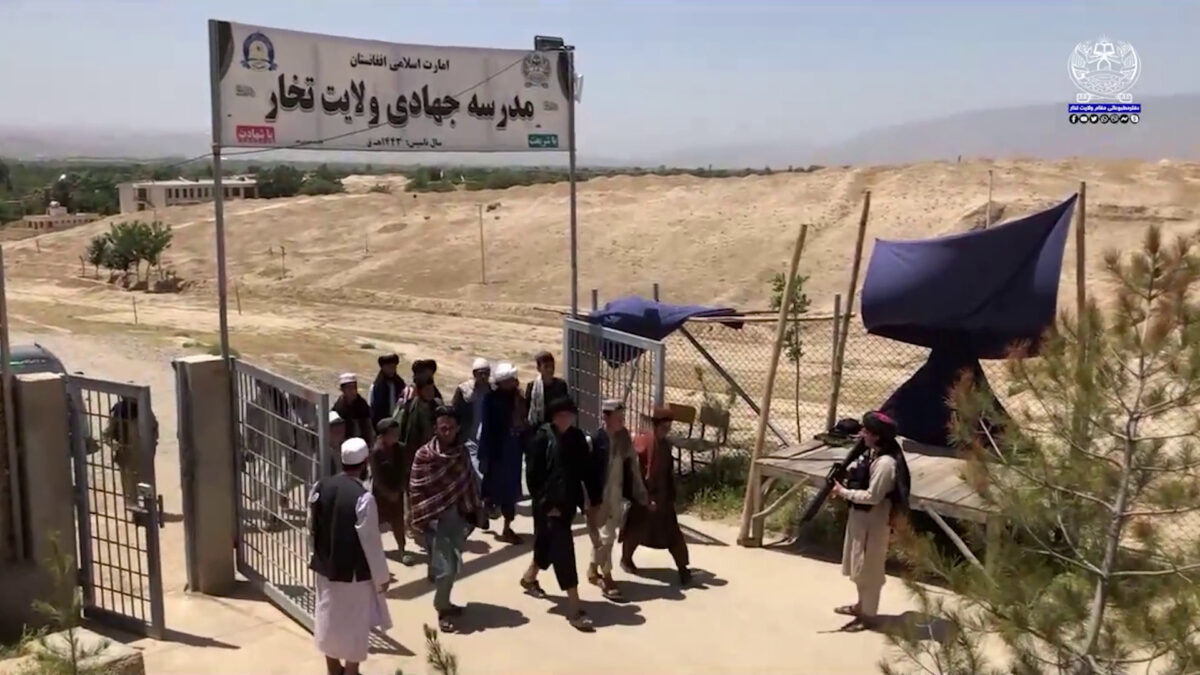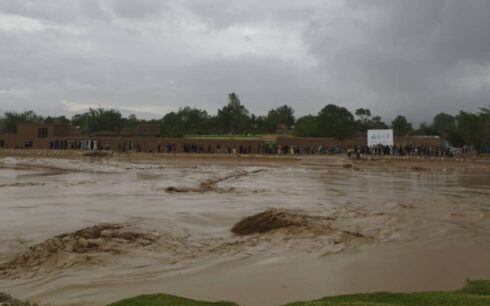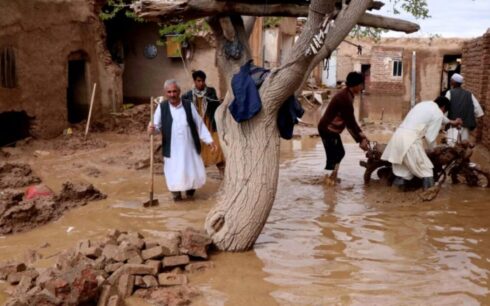The Taliban is “actively enrolling” young individuals into jihadi madrassas in at least 10 different provinces, as revealed by local sources. The Taliban has confirmed the implementation of a new curriculum in these religious schools, although specific details about the number of madrassas and enrolled students remain undisclosed.
These jihadi religious schools have been established in provinces such as Nuristan, Zabul, Farah, Kunar, Kabul, Panjshir, and several others. Notably, in Bamiyan province, a dormitory formerly used for a teachers’ training faculty has been transformed into a jihadi school, where students receive not only religious education but also military training, as sources described.
Concerns have arisen among students and residents regarding the potential for extremism and radicalism to emanate from these Taliban-operated jihadi schools, prompting worries about their impact on youth in Afghanistan.
“Establishing such religious and jihadist centers leaves negative impacts and consequences for society and leads society towards destruction and extremism,” one student from a Bamiyan madrassa said on condition of anonymity.
“We are deeply saddened by the transformation of dormitories into schools and jihadist centers,” added the student.

These students said they are worried about “the spread of extremism and radicalism” originating from Taliban jihadist schools among the youth.
“Those who are educated in these schools… are born with a high spirit of extremism, and in general, these cases will be the basis for terrorist activities in the country,” said another student.
While the Taliban has created a directorate for jihadi schools, no detailed information has been provided regarding the number of schools and the quantity of students involved.
A recent report from the US Special Inspector General for Afghanistan Reconstruction (SIGAR) has raised alarm about the proliferation of madrassas infiltrating the public school system. This development poses concerns due to the absence of secular education, including technology, science, mathematics, and essential literacy skills. This deficiency may hinder students’ ability to secure sustainable income and impede Afghanistan’s economic progress.
The report highlights the Taliban’s education policies, which narrow the curriculum and prioritize their interpretation of Islamic studies over secular subjects.

“These centers exclusively focus on violent and terrorist issues, as well as Taliban ideology, as they recruit and indoctrinate young individuals to perpetuate their rule,” stated Ghulam Farooq Alim, a university lecturer.
Instead of investing in traditional schools and universities, the Taliban’s leadership has prioritized madrassas. Their goal is to establish a minimum of 10 madrassas in each district, potentially resulting in over 4,000 such institutions throughout Afghanistan.
This situation arises in the context of the Taliban’s ban on secondary schools for girls, which has deprived over 1.1 million students of access to education over the past two years.





